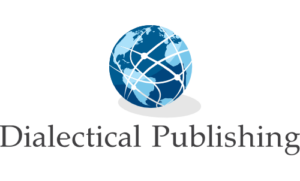

The International Journal of Multiple Research Approaches (IJMRA) involves the use of a quadruple-blind review process, as follows:
- Reviewers will not be aware of the identity of the authors
- Editors will not be aware of the author identification during the initial review process
- Editors will not be aware of the reviewer identification during the initial review process
- Authors will not be aware of the identity of the reviewers
All manuscripts generally will be reviewed by three scholars, at least one of which serves on the IJMRA editorial board. The journal editors aim to have each manuscript go through its initial review and subsequent review(s) within six months of receipt.
Authors will never be charged a fee of any kind to publish in IJMRA. Authors who have a manuscript accepted for publication in IJMRA and who agree to publish the ensuing article in the journal, should understand that IJMRA subsequently will own the copyright to the article. Authors should secure all necessary permissions should they wish to reproduce or to adapt material from other copyrighted sources, just as authors will be expected to seek permission from IJMRA should they later wish to reproduce or to adapt portions of the copyrighted IJMRA article. After publication, the lead author will be provided with a single electronic PDF version of their article that may be distributed to coauthors and used for personal reasons (e.g., tenure and promotion files). However, authors are not given permission to disseminate any IJMRA article, whether they authored it or not. Further, authors are not given permission to post any IJMRA article, including their own IJMRA article, in part or as a whole on any online repository (e.g., website) at any point because to do so would be to violate copyright law. Please send related inquiries to John Hitchcock <jhhitchc@gmail.com > or Tony Onwuegbuzie <tonyonwuegbuzie@aol.com>.
SUBMITTING THE MANUSCRIPT
Electronic Submissions
Manuscripts should be formatted according to the recommendations found in the Publication Manual of the American Psychological Association (7th edition).
IJMRA uses an online submission and review platform. Manuscripts should be submitted electronically to https://mc.manuscriptcentral.com/rmra
Authors will be required to set up an online account on the system hosted by ScholarOne. From their account, a new submission can be submitted. Authors will be asked to provide the required information (e.g., author names, contact information, abstract, keywords) and to upload the “title page” and “main document” separately to ensure that the manuscript is ready for a quadruple blind review. The site contains links to an online user’s guide (Get Help Now) for help navigating the site. The online submission website contains links to an online user’s guide for assistance in navigating the site.
If you have any questions about the submission process, please contact:
Donggil Song, Ph.D.
Managing Editor
Email: donggil.song@gmail.com
Authors who need to publish their articles via open access due to institutional or funding agency requirements are welcome to submit to IJMRA. A fee will be charged to authors who wish their articles to be published via an open access (OA) route, which means that their article is free-to-view by anyone in the world via the Internet and to reuse with attribution under a Creative Commons license or equivalent. Specifically, the author, institution, or research funder of the accepted manuscript can pay (i.e., article processing charge) to have what is referred to as a Pure ‘Gold’ Open Access Publishing, wherein articles are peer reviewed, accepted (if they meet the standards set forth by the IJMRA Editors), and formally published and then made available with no subscription pay-walls. The full-text of articles are freely available online immediately upon publication. Authors will have agreed to publish work with one of the Creative Commons licenses that enable them to retain copyright while allowing others to copy, distribute, and make certain uses of their work.
SUBMITTING MEDIA REVIEWS
Guidelines for preparing and submitting Media Reviews are available from the Media Review Editor (see editorial in IJMRA, Volume 10, Issue 1 by Media Reviewer).
MANUSCRIPT EXPECTATIONS
IJMRA publishes two major types of manuscripts: empirical research and non-empirical (e.g., methodological, theoretical, conceptual, historical essays) research that represents the field of multimethod research and/or mixed methods research.
For details about developing publishable mixed methods articles, please read the following articles:
Onwuegbuzie, A. J., & Poth, C. A. N. (2015). Afterword: Special issue. International Journal of Qualitative Methods, 14, 122-125.
Onwuegbuzie, A. J. (2016). A step-by-step guide to publishing journal articles and strategies for securing impactful publications. Research in the Schools, 23(1), 31-91.
Onwuegbuzie, A. J., & Corrigan, J. A. (2014). Improving the quality of mixed research reports in the field of human resource development and beyond: A call for rigor as an ethical practice. Human Resource Development Quarterly, 25, 273-299. doi:10.1002/hrdq.21197
Wisdom, J. P., Cavaleri, M. A., Onwuegbuzie, A. J., & Green, C. A. (2012). Methodological reporting in qualitative, quantitative, and mixed methods health services research articles. Health Services Research Journal, 47, 721-745. doi:1111/j.1475-6773.2011.01344.x
For evidence-based details about writing with discipline, please read the following articles regarding avoiding violations to the American Psychological Association (APA) style guide (APA, 2010) for the following sections of empirical and non-empirical (e.g., methodological, conceptual, theoretical) manuscripts:
- Abstract (Hahs-Vaughn, Onwuegbuzie, Slate, & Frels, 2009)
- Body of the manuscript (Onwuegbuzie, Combs, Slate, & Frels, 2010)
- Reference list (Onwuegbuzie, Combs, Frels, & Slate, 2011; Onwuegbuzie, Frels, & Slate, 2010; Onwuegbuzie, Hwang, Combs, & Slate, 2012; Onwuegbuzie, Hwang, Frels, & Slate, 2011; Onwuegbuzie, Waytowich, & Jiao, 2006; Waytowich, Onwuegbuzie, & Jiao, 2006)
- Table (Frels, Onwuegbuzie, & Slate, 2010a) sections of empirical and non-empirical (e.g., methodological, conceptual, theoretical) manuscripts submitted to a journal for review for possible publication.
Also, authors might find the following articles useful:
- Readability (Onwuegbuzie, Mallette, Slate, & Hwang, 2013)
- Link words/phrases (Onwuegbuzie, 2016)
- Grammatical errors (Onwuegbuzie, 2017)
Manuscripts are encouraged that address the following:
- Original multimethod research and mixed methods research in the social, behavioral, business, education, health, and human sciences. These manuscripts must
- be innovative inasmuch as they advance the field of multimethod research and/or mixed methods research
- fit or expand on the IJMRA definition of multimethod research or mixed methods research in the conduct of research
- make explicit the points of interface between methods, epistemologies, axiologies, and stakeholder perspectives, standpoints, and the like
- make clear how they add to the literature on multimethod research and/or mixed methods research
- make a significant contribution to a substantive area in the scholar’s field or discipline of inquiry
- Methodological/theoretical/conceptual/historical issues must advance conceptualization, applicability, usability, ethics, distribution of knowledge in offline and/or online spaces via multimethod research and/or mixed methods research, such as follows:
- History of multimethod research or mixed methods research
- Landscape of multimethod research or mixed methods research
- Paradigm stances in multimethod and mixed methods research/evaluation
- Arts-based research in research and evaluation
- Type of research/evaluation questions
- Types of research/evaluation designs
- Theories/practices of causation
- Sampling designs in research/evaluation
- Measurement procedures in research/evaluation
- Approaches to data analysis in research/evaluation
- Validity and legitimation in research/evaluation
- Software applications in research/evaluation
- Writing with discipline in research/evaluation
- The value and use of multimethod and mixed methods research/evaluation
MANUSCRIPT REQUIREMENTS
Title Page: Authors must prepare a title page that includes the manuscript title, authors and affiliations, contact information for the corresponding author, and author acknowledgements, if relevant. The author names should only appear in the title page document. Manuscripts should be prepared with author names blinded throughout to facilitate the review process.
Abstract: An abstract provides a concise summary of the research, typically limited to 250 words as per the guidelines on page 38 of the Publication Manual of the American Psychological Association (APA). However, in recognition of the evolving forms of research communication, the International Journal of Multiple Research Approaches (IJMRA) permits and encourages the submission of poetic abstracts (i.e., consisting solely of poetry) and prose-poetic abstracts (i.e., integrating both prose and poetry). These innovative abstract formats, which expand the expressive possibilities of research, may extend up to 350 words to balance adequately the poetic and analytical elements. Standard prose abstracts should adhere to the 250-word limit.
Poetic abstracts must convey the core essence of the research through evocative and rhythmic language, encapsulating its significance and findings. Prose-poetic abstracts should strategically blend prose’s structural clarity with poetry’s emotional resonance, creating a multidimensional narrative that engages both the intellect and the imagination of the reader. Authors are encouraged to consider these creative formats to enhance the accessibility and impact of their scholarly work.
Style: All manuscripts should conform to the Publication Manual of the American Psychological Association (7th Edition). The entire document should be double-spaced and left justified, use a 12-point font (preferably using Times New Roman font), and have pages numbered consecutively. Authors should prepare an abstract and 3-7 keywords. The manuscript should be prepared in Microsoft Word (.doc) or rich text format (.rtf) document and include the body of the manuscript, references, endnotes, appendix(ces), tables, and figures. References, endnotes, tables, and figures must be on separate pages. All tables and figures also must be placed into different files. Authors should indicate the approximate placement of each table and figure within the body of the manuscript with a comment such as “Insert Table 1 about here” or “Insert Figure 1 about here.” Please use endnotes instead of footnotes. Authors should use either U.S. or English spellings. Authors should not blind citations or references—that is, authors should not blind self-cited works by replacing their names in the in-text citations and references with a symbol or by using the “Author, Year” format. However, when presenting self-citations, authors should avoid using any pronouns [e.g., “This research study is an extension of my previous study” (Berry, 2017)].
Word Limits: The full manuscript (including references, appendices, and tables) should not exceed 10,000 words in length for either empirical manuscripts or non-empirical manuscripts. In addition, authors should prepare an abstract limited to 250 words. For any manuscript that exceeds the 10,000-word limit, the author(s) should provide a rationale for its word count. The Editors reserve the right to return to the authors manuscripts that substantially exceed the stated word limitations.
Originality of the Manuscript: Authors submitting manuscripts to IJMRA should not simultaneously submit them to another journal, nor should manuscripts have been published elsewhere in substantially similar form or with substantially similar content. Authors who have submitted manuscripts to other journals based on the same data are asked to state this explicitly in their cover letters and to submit copies of these other works for review by the Editors at the time of submitting a manuscript to IJMRA. Authors in doubt about what constitutes as a prior publication or a piecemeal publication should consult the Editors.
Obtaining Permissions: The author is responsible for obtaining permission for any quoted or reprinted material that requires permission. Submission of a manuscript implies commitment to publish in IJMRA.
REVIEW CRITERIA
The following rubric will be used as review criteria for empirical research:
RUBRIC FOR IJMRA AUTHORS AND REVIEWERS HERE
The review criteria for empirical research, based on Onwuegbuzie and Poth’s (2015) rubric, include the following:
- Warrantedness
- Justification
- Writing Quality
- Transparency
- Integration
- Philosophical Lens
Obtaining English-Language help for your Submission:
Authors who would like to refine the use of English in their manuscripts might consider using the services of a professional English-language editing company. An author’s use of these services in no way guarantees that his or her submission ultimately will be accepted. Any arrangement or contract made between the author enters and the professional English-language editing company will be exclusively between the two parties, and any costs incurred are the sole responsibility of the author.